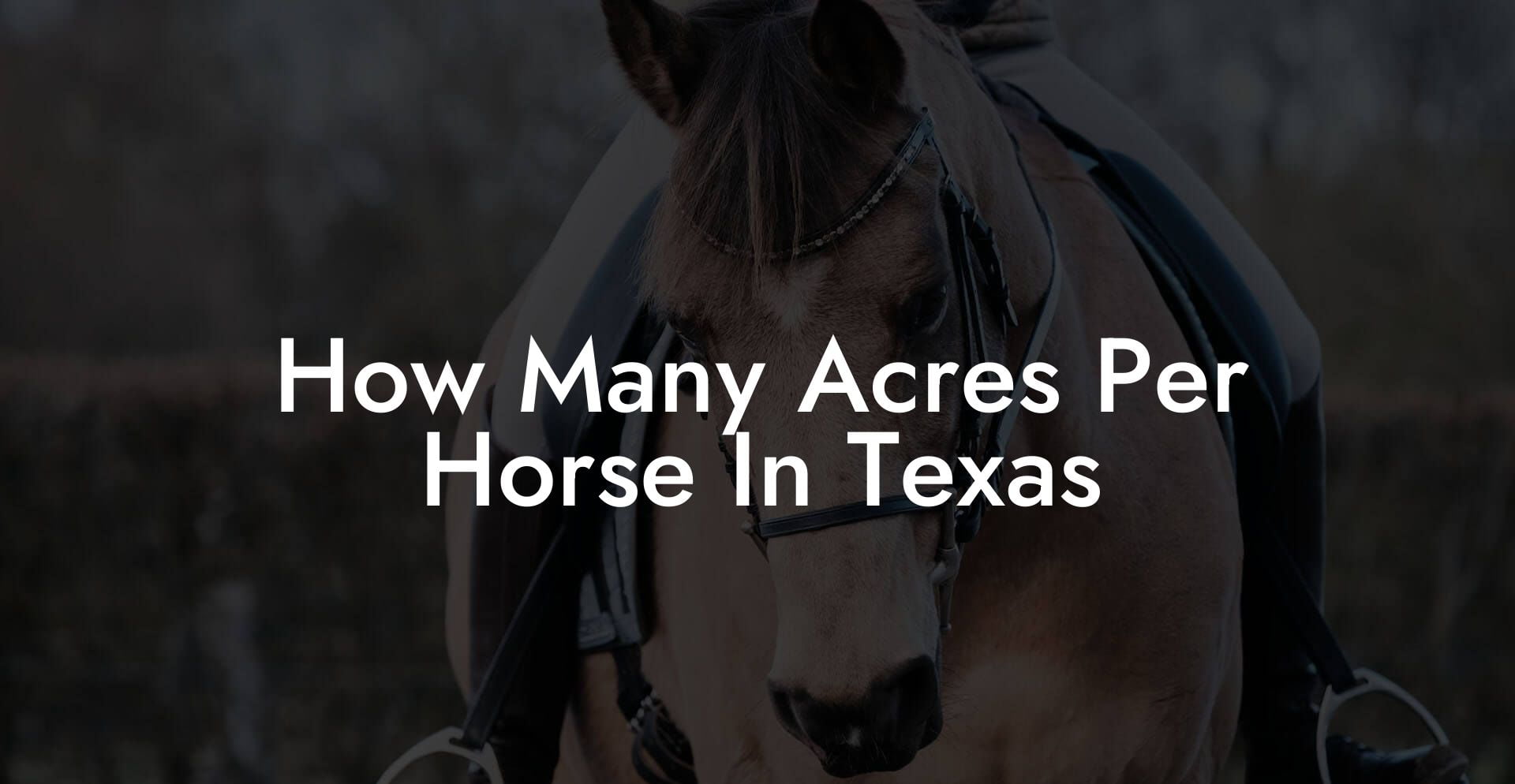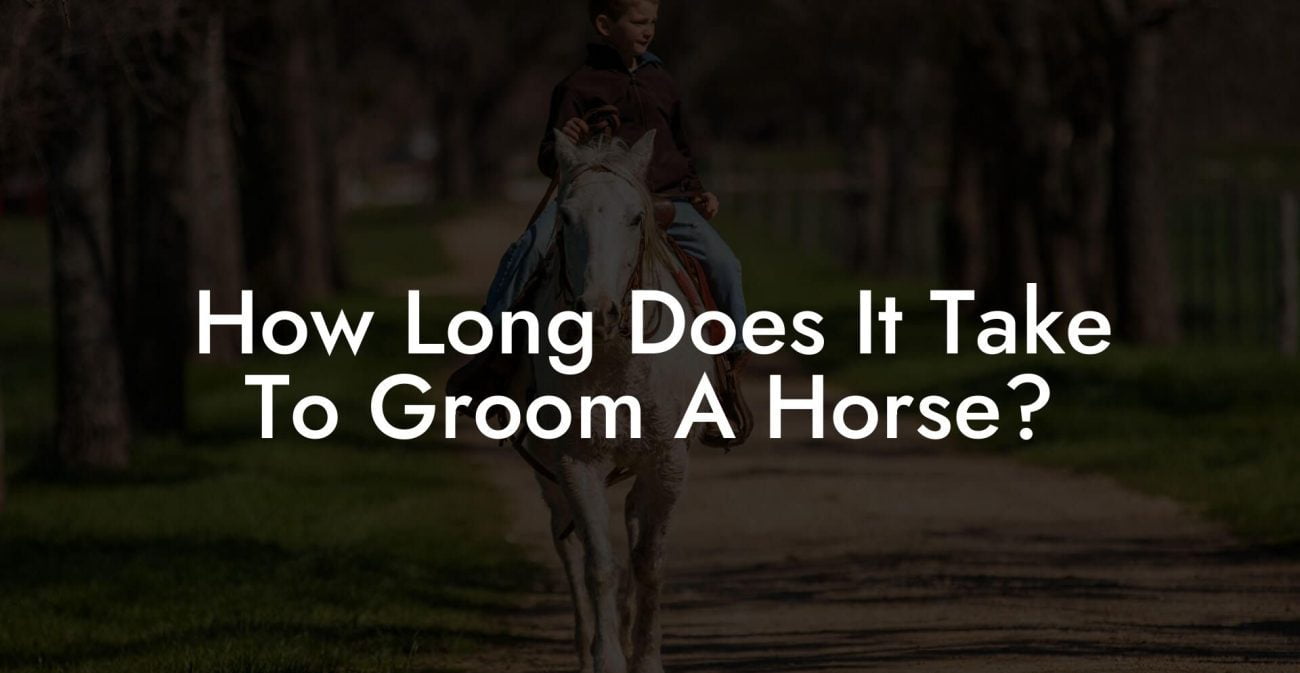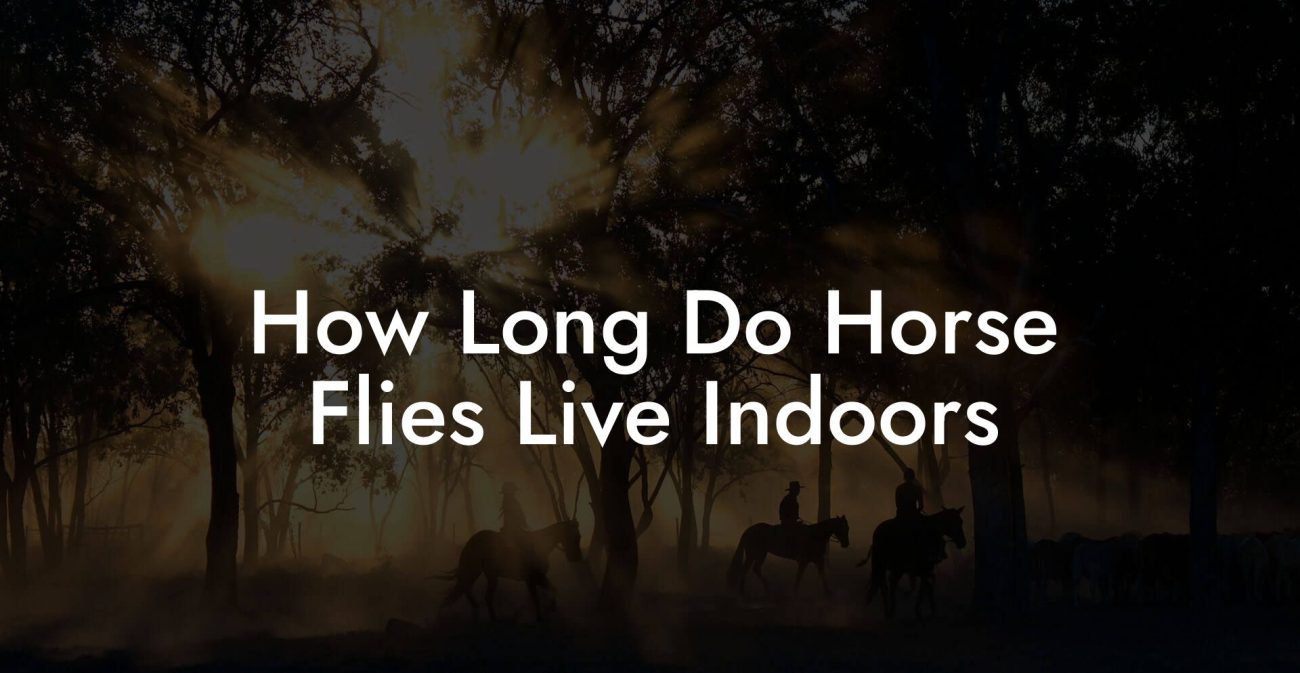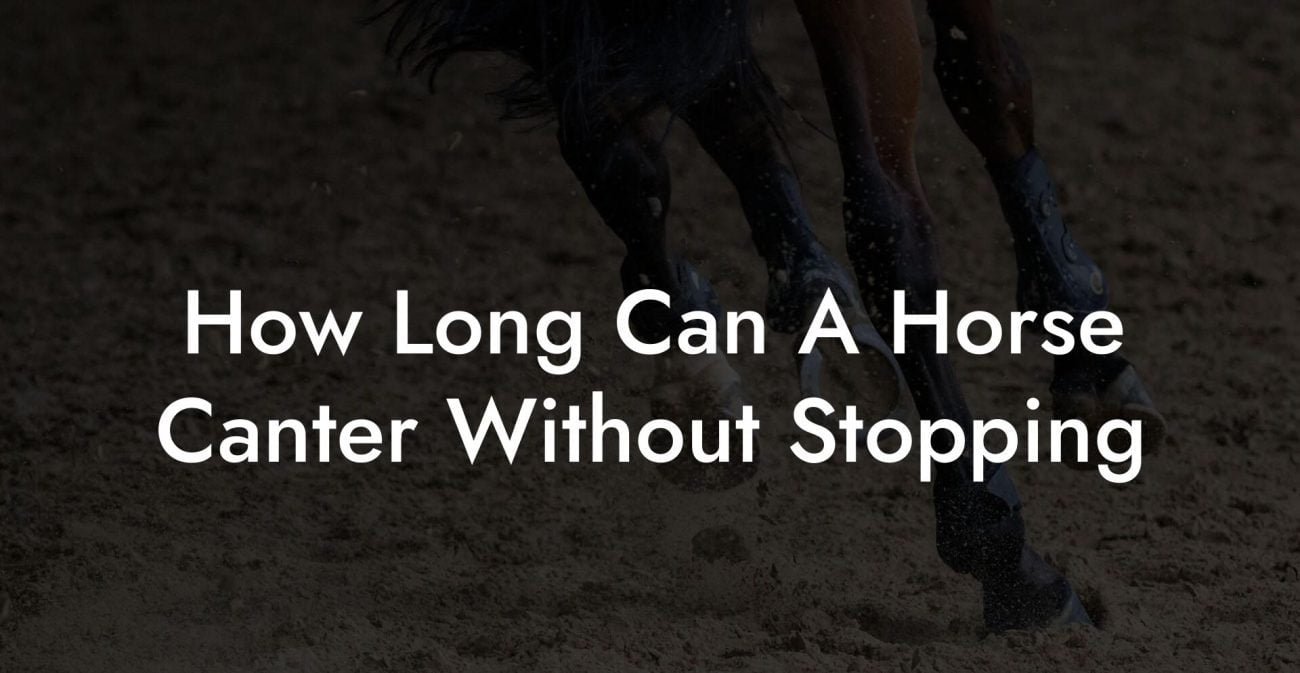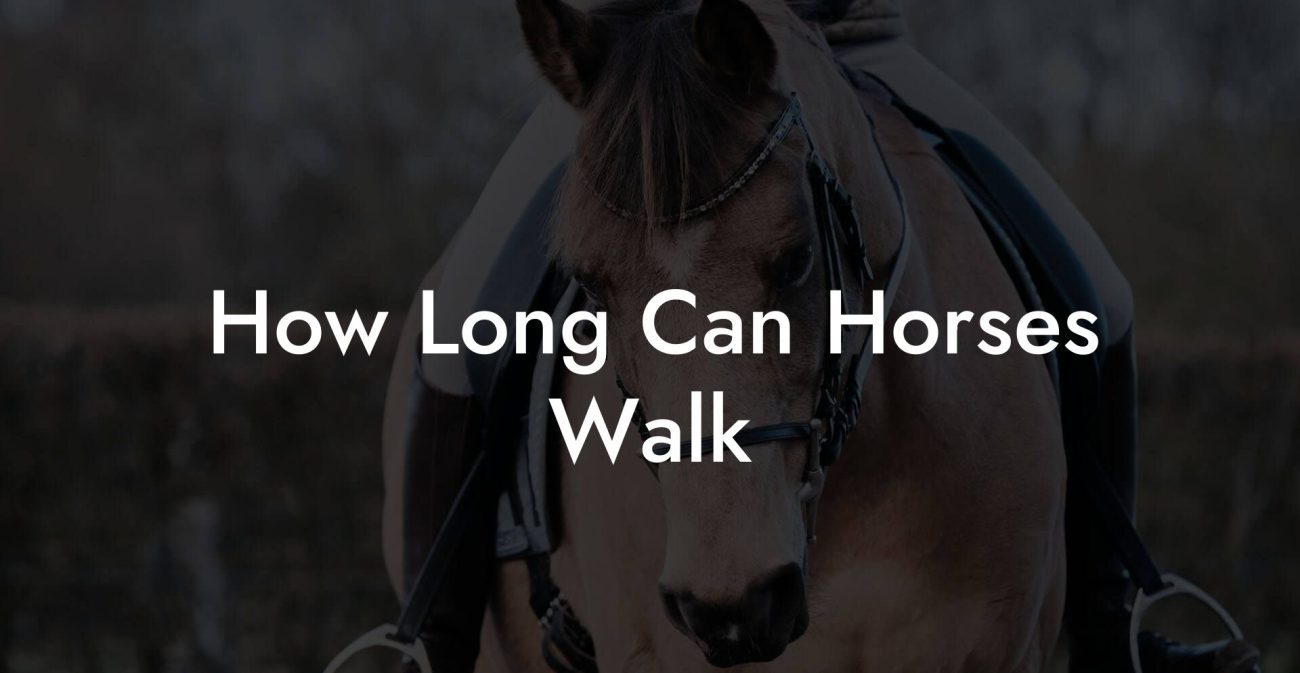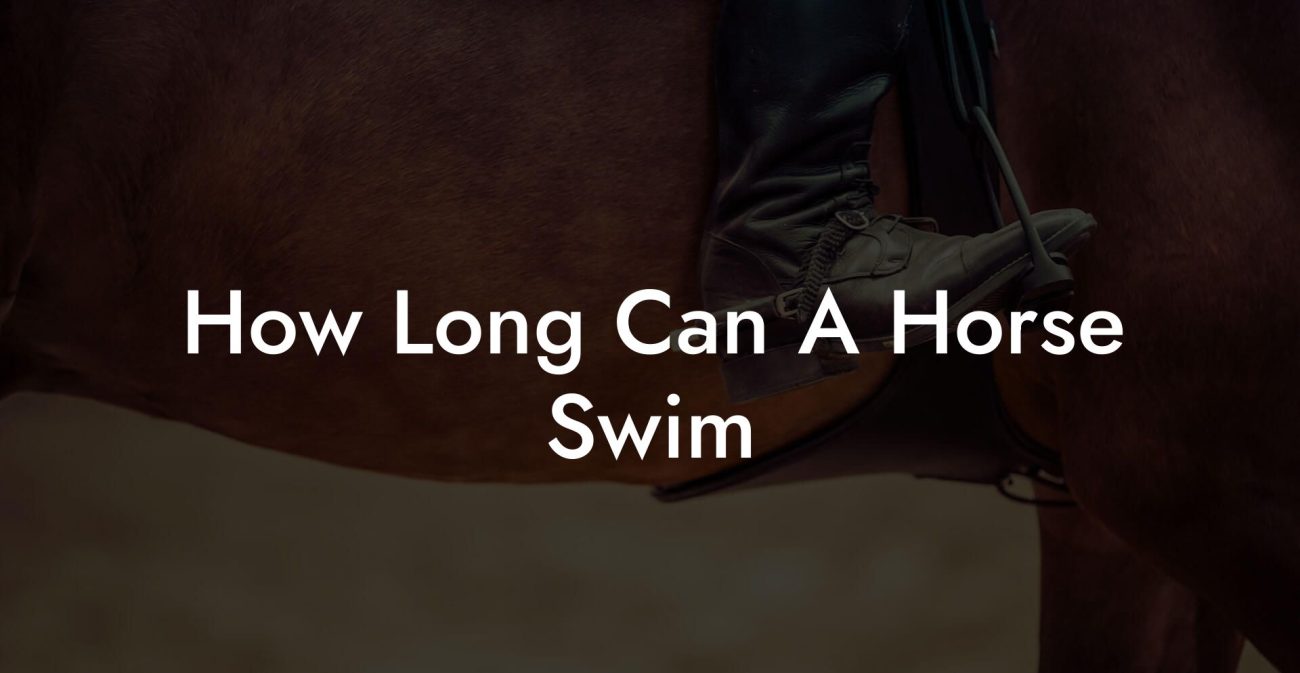There’s a unique rhythm to Texas, a blend of wide-open spaces, scorching summers, and a deep-rooted tradition of horse culture. For those of us who dream of owning a horse in the Lone Star State, one burning question often takes center stage: How many acres per horse in Texas? As you embark on your journey into Texas horsemanship, whether you're a seasoned rancher or a newcomer drawn to the wild frontier, this guide is your go-to resource for understanding everything from pasture requirements to the nuances of horse care, land management, and the local regulations that affect your equine oasis.
Quick Links to Useful Sections
- Understanding the Basics: What Does “Acres Per Horse” Really Mean?
- The Texas Landscape: Climate, Soil, and Regulatory Considerations
- Climate and Seasonal Variability
- Soil Quality and Topography
- Local Zoning and Environmental Regulations
- Calculating Your Acreage Needs: Factors to Consider for Horse Pastures in Texas
- Horse Breed and Size
- Utilization and Activity Level
- Pasture Management and Rotational Grazing
- Supplementary Feeding and Environmental Harshness
- Best Practices for Horse Pasture Management in Texas
- Implementing Rotational Grazing
- Regular Soil Testing and Nutrient Management
- Water Access and Infrastructure
- Shade and Shelter
- Regular Maintenance and Grass Health
- Integrative Horse Care: Beyond Just Acreage
- Nutrition: Fueling Optimal Performance
- Exercise and Training Regimens
- Routine Veterinary and Farrier Care
- Mental and Social Well-being
- Case Studies from the Heart of Texas: Real-Life Success Stories
- Case Study 1: The Hill Country Haven
- Case Study 2: Urban Retreat on the Outskirts
- Case Study 3: A Mustang Sanctuary Reimagined
- Leveraging Technology and Community Resources
- Tech-Driven Pasture Management
- Online Communities and Educational Resources
- Consulting with Local Experts
- Resources and Community Support: Your Next Steps
- Join Local Equine Associations
- Engage with Online Forums and Social Media Groups
- Attend Workshops and Seminars
- Consult with Experts
- Frequently Asked Questions About Acres Per Horse in Texas
- Your Journey to Responsible, Well-Managed Horsemanship in Texas
Understanding the Basics: What Does “Acres Per Horse” Really Mean?
When we talk about “acres per horse,” we're not just crunching numbers or following a one-size-fits-all blueprint; we’re exploring a mosaic of considerations that include your horse’s breed, temperament, usage, and the unique characteristics of the Texas landscape. In a state where the terrain can range from lush, rolling hills in the Hill Country to the rugged flatlands of West Texas, the ideal acreage can vary dramatically.
For many, the rule of thumb in equine management suggests anywhere from 1 to 2 acres per horse on well-managed pasture. However, in Texas, with its intense summers, periodic droughts, and variable rainfall, this isn't simply an equation of “one acre equals one horse.” Instead, it's about understanding that each horse's needs are interwoven with factors such as available forage, proper shade, water access, and rotational grazing practices.
Whether you’re planning on owning a single spirited quarter horse or nurturing a thriving herd of mustangs, grasping these fundamentals is key. Not only will it ensure the well-being of your equine companions, but it also plays a significant role in sustaining the health of your pasture and overall land management.
The Texas Landscape: Climate, Soil, and Regulatory Considerations
Texas isn’t just a state; it’s a state of mind, a place where the sun paints brilliant skies and the weather tells its own story. When considering how many acres per horse, you must account for the wide variation in Texas geography and climate. Here are a few things to keep in mind:
Climate and Seasonal Variability
Texas weather can be unpredictable. Hot, dry summers, sudden thunderstorms, and the occasional bitter winter are all part of our climatic roller coaster. These factors affect how quickly pastures regrow and, consequently, how many horses your land can sustainably support. During dry spells, overgrazed pastures can quickly turn to dust if not managed with adequate acreage and rotational strategies.
Soil Quality and Topography
The rich, diverse soils of Texas can be both a blessing and a challenge. In areas with well-drained, fertile soil, pastures may flourish with quality forage. However, other regions may struggle with compaction and low fertility, necessitating more land per horse to avoid overgrazing and soil erosion. Understanding your soil type and its capacity to support healthy grasses is crucial for any serious horse owner.
Local Zoning and Environmental Regulations
Beyond natural factors, regulatory requirements also play a role. Some counties in Texas have specific zoning laws that dictate how land can be used, including stipulations on livestock and equine management. These regulations are designed to protect the environment, manage water resources responsibly, and ensure that animal welfare standards are met. Before you break ground on your horse ranch, it’s essential to consult local authorities and understand the legal framework that applies to your acreage.
Calculating Your Acreage Needs: Factors to Consider for Horse Pastures in Texas
There’s a bit of art and a dash of science in determining just how many acres you need per horse. While the often-cited guideline of 1 to 2 acres per horse is a good starting point, a deeper dive into key factors will help tailor that estimate to your unique situation.
Horse Breed and Size
Not all horses are created equal. Larger breeds like draft horses or certain riding horses might require more forage and space compared to smaller breeds. Quarter horses, Arabians, and mustangs all have different grazing needs. It's important to match your acreage to the physical demands of your particular breed, ensuring that each horse has room to roam and graze without overburdening the pasture.
Utilization and Activity Level
Are your horses mostly in turnout for leisure, or are they intensive athletes training year-round? High-performance horses, or those that are in regular heavy work, typically have higher dietary and rest needs. This means that while they might benefit from being in a pasture, additional space for quiet time and recovery is necessary.
Pasture Management and Rotational Grazing
One of the best practices in ensuring sustainable land use is rotational grazing. Instead of letting horses graze in the same spot continuously, dividing your pasture into smaller sections and rotating your herd can help prevent overgrazing. This method not only preserves the quality of the grass but also minimizes soil compaction and erosion. In Texas, where periods of drought are common, rotating grazing areas gives your land the much-needed recovery time.
Supplementary Feeding and Environmental Harshness
In tougher climatic conditions or during severe droughts, horses may need supplementary feeding to compensate for the reduced pasture quality. If you find yourself in this situation, you might not need as large an acreage because the horses aren’t relying solely on pasture for their nutrition. However, always balance the nutritional needs with ample space for exercise and natural behaviors.
By carefully considering these elements, you can calculate a more personalized acreage requirement that supports your horses’ well-being while also maintaining the integrity of your land.
Best Practices for Horse Pasture Management in Texas
Making the most of your land is more than a number game, it’s about adopting smart pasture management strategies that ensure sustainability and animal welfare. Whether you’re a Gen-Z urban farmer or a millennial rising star in the equine community, these time-tested practices will transform your Texas pasture into a thriving, resilient ecosystem.
Implementing Rotational Grazing
Rotational grazing is the crowned jewel of pasture management. By dividing your land into smaller paddocks and rotating horses between them, you provide the soil with a reprieve from constant trampling and grazing. This method gives the grass time to recover, improves nutrient distribution in the soil, and can even reduce the prevalence of parasites.
Regular Soil Testing and Nutrient Management
Think of soil testing as a regular check-up for your land. Testing helps determine the levels of essential nutrients like nitrogen, phosphorus, and potassium, which in turn guides you in making informed decisions about fertilization or other soil amendments. Many Texas ranchers swear by periodic soil analyses to keep their pastures in peak condition.
Water Access and Infrastructure
Adequate water is non-negotiable when it comes to horse care. Beyond ensuring that each horse has access to clean water, focus on the infrastructure that supports your watering system. This includes installing reliable water troughs, investing in irrigation systems, and strategically placing water sources to encourage even grazing across your pasture.
Shade and Shelter
Texas summers can be brutal. Offering your horses plenty of shade, whether through natural tree cover or strategically placed shelters, can make a world of difference in their comfort and health. A well-designed pasture will balance open grazing areas with spots where horses can escape the relentless sun.
Regular Maintenance and Grass Health
Maintaining the health of your turf is a continuous process. Regular mowing, controlled burning (where appropriate and permitted), and reseeding underutilized areas can rejuvenate your pasture. The idea is to keep the grass robust and diverse, ensuring that it withstands grazing pressure while recovering swiftly.
Adopting these best practices not only enhances the quality of your horse ranch but also creates a sustainable model of land management that honors Texas’ heritage while embracing modern techniques.
Integrative Horse Care: Beyond Just Acreage
While acreage is a vital component of sustainable horse management, true equine wellness extends far beyond the boundaries of your pasture. Think holistic: equine nutrition, regular exercise routines, comprehensive health check-ups, and even mindfulness for the modern horse owner. Here’s how you can blend these dimensions into your routine:
Nutrition: Fueling Optimal Performance
Just as every horse is unique, so too are their dietary needs. In Texas, where pastures can vary widely in quality, supplementing natural forage with high-quality feed, vitamins, and minerals is often necessary. Consult with an equine nutritionist to develop a feeding plan that aligns with the demands of your horse’s activity level, age, and overall health.
Exercise and Training Regimens
Equine exercise isn’t merely about physical fitness; it’s also a key factor in mental well-being. Regular training routines, whether it’s trail riding, dressage, or simple groundwork, ensure that your horses remain agile and healthy. Pairing structured exercise with ample pasture time creates a balanced lifestyle for your equine companions.
Routine Veterinary and Farrier Care
Maintaining regular vet visits and farrier appointments is a cornerstone of responsible horse ownership. In a state as vast as Texas, where distances and conditions can be challenging, keeping up with routine care helps preempt major health issues. From vaccination schedules to hoof trimming, these routines not only improve your horse’s quality of life but also extend their longevity.
Mental and Social Well-being
Horses are social creatures with complex mental lives. Ensure that they have plenty of opportunities to interact with their peers in a safe, controlled environment. For many Texas ranchers, this means creating diverse pasture layouts that encourage natural social behaviors alongside designated quiet zones for rest and recovery.
Integrating these aspects of horse care into your daily management routine creates an environment where your horses can thrive both physically and emotionally. After all, a happy horse is often a well-cared for horse.
Case Studies from the Heart of Texas: Real-Life Success Stories
When theory meets practice, the results can be nothing short of inspiring. Across Texas, numerous ranchers have fine-tuned their strategies for allocating acreage per horse while integrating modern management practices. These success stories illustrate that the right blend of tradition and innovation can transform even challenging conditions into flourishing equine havens.
Case Study 1: The Hill Country Haven
In the rolling hills of central Texas, a millennial rancher named Lily decided to break away from conventional acreage formulas. Instead of strictly adhering to the 1-2 acre guideline, she implemented a rotational grazing system and combined it with advanced soil testing and targeted fertilization. By doing so, she discovered that her horses could thrive on slightly less acreage, a testament to the power of efficient pasture management when paired with sustainable practices.
Case Study 2: Urban Retreat on the Outskirts
For urban dwellers moving to the fringes of Texas, space can be at a premium. Mark and Jenna, young professionals with a passion for horses, transformed their modest plot into a state-of-the-art equine retreat. By integrating modern irrigation techniques, lush ground cover, and high-tech rotational systems, they created a sustainable environment that allowed two horses to enjoy ample grazing, even on a limited acreage. Their innovative approach has since inspired many in the burgeoning urban farming movement across Texas.
Case Study 3: A Mustang Sanctuary Reimagined
In West Texas, where the terrain can be harsh and unforgiving, longtime rancher Carlos faced a challenge with his free-ranging mustangs. By reassessing his land management strategy and increasing his acreage per horse from the traditional estimate to better account for natural variability, he not only improved the health and vigor of his herd but also set a new standard for responsible mustang care in the region. His approach, emphasizing both ecological balance and modern management techniques, has garnered attention as a model for sustainable equine stewardship.
These case studies illustrate that whether you’re managing a sprawling ranch or a more compact urban setup, thoughtful planning and adaptive strategies can yield remarkable results. They serve as tangible examples that the answer to “how many acres per horse in Texas?” is as much about effective management as it is about raw acreage.
Leveraging Technology and Community Resources
In a digital age where tradition meets technology, modern equine management in Texas is evolving fast. From smartphone apps that track grazing patterns to online communities and virtual consultations with experts, today’s ranchers have more tools at their disposal than ever before. Let’s explore how you can harness these advancements to enhance your horse care strategy.
Tech-Driven Pasture Management
Innovative tools such as satellite imaging, soil moisture sensors, and mobile apps allow you to keep a real-time pulse on your pasture’s health. These technologies can alert you to areas that need immediate attention, be it watering, seeding, or rotational changes. By integrating tech solutions, you’re not just relying on traditional methods; you’re also tapping into data-driven insights that can transform the way you manage your Texas acreage.
Online Communities and Educational Resources
The horse ownership community in Texas is as passionate as it is knowledgeable. Online forums, social media groups, and webinars hosted by equine experts offer a treasure trove of practical advice and firsthand experiences. Engaging with these communities allows you to share your challenges, learn from others’ successes, and stay updated on industry trends and state-specific regulations.
Consulting with Local Experts
While technology is a great equalizer, nothing beats the insight of professionals who know the Texas landscape intimately. Local agricultural extension services, equine veterinarians, and land management experts can provide tailored advice based on your location’s unique climate, soil, and regulatory environment. Their hands-on experience can be your most valued resource in fine-tuning your acreage needs.
In Texas, the fusion of technology with traditional know-how is creating a vibrant ecosystem for sustainable horse care. Embracing these advances not only helps you maximize the potential of your land but also builds a network that supports your long-term equine aspirations.
Resources and Community Support: Your Next Steps
Ready to take the plunge into a well-managed, thriving equine lifestyle in Texas? Start by connecting with local agricultural extension programs, equine associations, and state-specific resources. Here are some actionable steps:
Join Local Equine Associations
Organizations such as the Texas Equine Council and local chapter clubs can offer invaluable advice, networking opportunities, and a supportive community of fellow horse enthusiasts. They host workshops, seminars, and field days that cover everything from pasture management to equine nutrition.
Engage with Online Forums and Social Media Groups
Whether it’s on Facebook, Reddit, or specialized equine forums, tapping into online communities can boost your knowledge and offer practical tips from ranchers who have been there, done that. Sharing your experiences and challenges not only builds connections but can also lead to innovative solutions tailored to your land.
Attend Workshops and Seminars
Keep an eye out for local and regional events dedicated to sustainable farming and horse care. Workshops on topics ranging from innovative rotational grazing methods to advanced soil testing can be instrumental in honing your management strategy.
Consult with Experts
Schedule consultations with local veterinaries, soil scientists, and pasture management specialists. Their insights, grounded in the practical realities of Texas farming, can provide you with a customized plan for your particular situation.
By taking these next steps, you not only arm yourself with the knowledge needed to determine your acreage per horse, but you also become part of a larger movement that celebrates responsible, sustainable, and modern horse care in Texas.
Frequently Asked Questions About Acres Per Horse in Texas
Here are some common questions that arise when planning your horse ranch in Texas, along with thoughtful answers to help guide your decision-making process.
1. Is the “1 to 2 acres per horse” rule a hard and fast rule in Texas?
Not at all. While the 1 to 2 acres guideline is a common starting point, the ideal acreage per horse depends on factors like the quality of the pasture, local climate conditions, the horse’s breed and activity level, and your grazing management practices.
2. What happens if my pasture is overgrazed?
Overgrazing can lead to soil compaction, poor forage quality, and increased parasite loads. Implementing rotational grazing and providing sufficient acreage per horse can mitigate these issues, ensuring your pasture and horses remain healthy.
3. How do Texas drought conditions affect acreage needs?
During drought periods, pastures may not recover as quickly, requiring more land to sustain your horses or the need for supplemental feeding. Understanding seasonal variations and adapting your grazing management accordingly is key.
4. Can I use technology to help manage my pasture?
Absolutely! Modern tools such as soil moisture sensors, satellite imaging, and mobile apps can provide data to fine-tune your pasture management, helping you make informed decisions on grazing rotations and resource allocation.
5. What are some best practices for ensuring sustainable pasture health?
Key practices include rotational grazing, regular soil testing, appropriate supplemental feeding during dry periods, and maintaining infrastructure like water and shade facilities for your horses.
6. How can I connect with other Texas horse owners?
Joining local equine associations, participating in online forums, and attending community workshops are great ways to network with fellow ranchers and share invaluable insights.
7. What should I do if my land isn’t ideal for grazing year-round?
If your pasture struggles during certain seasons, consider adjustments such as increasing the acreage per horse during dry periods, integrating alternative forage sources, or investing in supplemental feeding to bridge the gaps.
Your Journey to Responsible, Well-Managed Horsemanship in Texas
As you traverse the path toward owning and caring for horses in Texas, remember that every acre, every blade of grass, and every hoof print contributes to a larger picture of responsible horse ownership. Your journey is one of learning, adaptation, and growth, a blend of modern techniques with time-honored traditions.
Embracing the challenge of determining just how many acres per horse in Texas is not merely about following a formula. It’s about understanding the interplay between your land, your horses, and the environment they call home. From leveraging technology to joining hands with a vibrant community of fellow equine enthusiasts, every step you take is a stride toward a sustainable, thriving ranch.
Your Texas horse journey is an evolving narrative, a story of innovation, passion, and commitment to the well-being of your equine partners. Trust in your instincts, remain open to new ideas, and let each season teach you something new about the art and science of land management.
Whether you’re aiming to create a cozy urban retreat or a sprawling ranch steeped in tradition, your efforts contribute to a legacy of responsible horsemanship. So saddle up, dig in, and let the Lone Star spirit guide you on a journey where every acre matters and every moment with your horses is a celebration of life, freedom, and the boundless beauty of Texas.
Step forward with confidence into a future where your horses roam free, your pastures flourish, and your heart beats in rhythm with the soulful pulse of Texas. Your journey to responsible, well-managed horsemanship is just beginning, ride on, and let your story be one of innovation, care, and endless passion.

